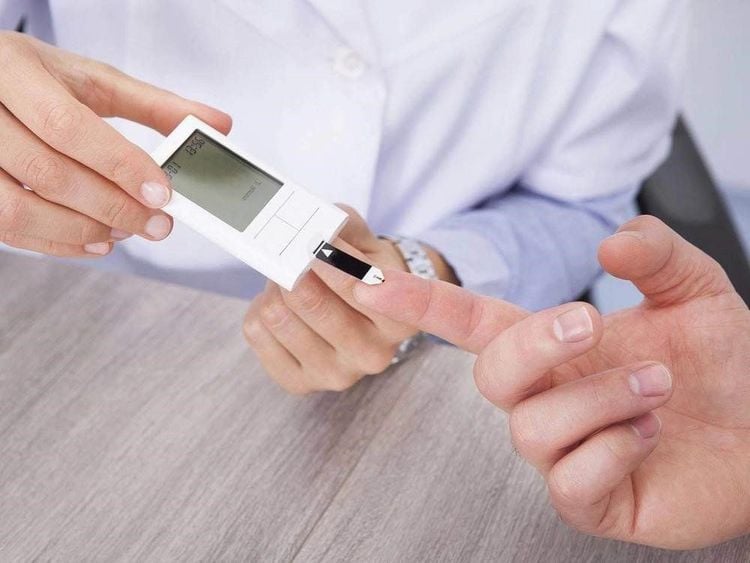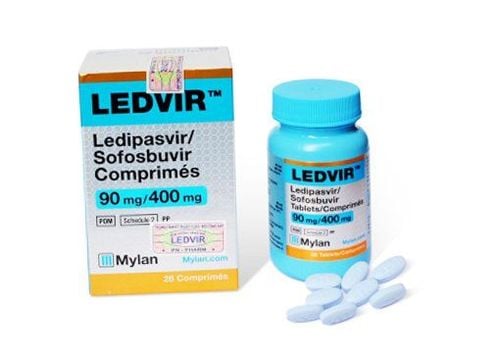This is an automatically translated article.
The article is professionally consulted by Master, Doctor Huynh An Thien - Neurologist - Department of Medical Examination & Internal Medicine - Vinmec Danang International Hospital.1. Are neurologic complications of diabetes common?
In the human body there are many types of nerves, distributed unevenly and with different roles. Patients with diabetes and diabetes are quite susceptible to peripheral neuropathy, especially in people who do not have good blood sugar control.According to statistics, about 60-70% of diabetic patients have neurological complications, mainly peripheral neuropathy and autonomic complications. Many patients at the time of diagnosis were diagnosed with diabetes and had neurological complications.

2. Causes of neurological complications in diabetes
Nerve and blood vessel damage is a major factor in neurologic complications in diabetes. However, the mechanism of injury is still not completely understood. It is possible that high blood glucose causes damage to small blood vessels that feed nerves, and at the same time produces neurotoxic substances. In addition, the small blood vessels that feed the nerves are damaged, affecting the supply of oxygen and nutrients, slowing the speed of signal transmission. In many cases, signal transmission is completely lost.These blood sugar-induced nerve injuries are usually permanent irreversible or only partially reversible. In addition, there are a number of other risk factors that contribute to nerve complications in diabetics such as:
An inflammatory autoimmune reaction: When the immune system mistakes a nerve for a foreign object, it attacks. Nerves cause inflammation. Smoking, alcohol and substance abuse: Nerve and blood vessel damage. Smoking in particular can cause hardening and narrowing of blood vessels, reducing blood flow to the extremities, and contributing to nerve damage. Duration of illness: The longer the illness, the greater the risk of neurological complications. Peripheral neuropathy complications in diabetes over 25 years, blood glucose is not stable well. Chronic kidney disease: Combined chronic kidney disease increases toxins in the blood, causing nerve damage. Other diseases: Cardiovascular disorders, obesity, hypertension, dyslipidemia, poor nutrition,... Elderly: The rate of neurological complications in diabetic patients from 25 to 29 years old is only 5%, but in patients 70-79 years old increased to 44.2%.

3. Are peripheral nerve complications in diabetics dangerous?
Peripheral neuropathy in diabetes often affects the lower extremities with the following pathological symptoms:Early signs: Decreased sensation in both legs, mainly feet, may spread to the shin but rarely beyond the knee. Numbness in the legs, especially the toes and feet. Pain, burning in the soles of the feet, the condition increases at night, causing the patient to lose sleep. The pain may be persistent or intermittent, unresponsive to conventional pain relievers. Partial or total loss of sensation: When the nerve in the leg is severely damaged, the patient experiences sensory disturbances or complete loss of sensation in this area. Therefore, the patient cannot recognize danger signs such as heat, pain from burns, foreign objects stabbing, ... until the legs swell or become seriously infected. Similar symptoms are seen in the upper extremities and hands but usually come later. The most severe is that the patient loses feeling completely, causing the risk of foot ulcers. Doctors may need to amputate a limb due to diabetic peripheral neuropathy.
In addition, nerve complications in the legs can cause foot and ankle joint complications, typically charcot foot symptoms.

4. Treatment of diabetic neuropathy
Currently, there is no cure for neurological complications in general and peripheral neuropathy in particular in diabetic patients. Medicines and other treatments mainly help relieve pain, slow down disease progression, restore function, and overcome complications.4.1 Treatment to slow down the progression of the disease The most effective treatment is to control blood glucose actively, achieving stable. In addition, it is necessary to do:
Control blood pressure Stop smoking Eat in moderation Do appropriate physical exercise Stop drinking alcohol Maintain weight 4.2 Treat pain Depending on pain caused by peripheral nerve complications, only Identify effective pain relievers and minimize side effects.
Commonly used drugs such as:
Antiepileptic drugs: Pregabalin (Lyrica), Gabapentin (Neurontin)m Carbamazepine (Tegretol). Tricyclic antidepressants: amitriptyline, desipramine, nortriptyline, imipramine. Painkillers like tramadol, oxycodone (cannot be used long-term). Lidocaine-impregnated patch: applied to the painful area. In addition, it is possible to temporarily relieve pain caused by peripheral nerve complications with topical cream Capsaicin, Alpha-lipoic acid, acupuncture, transdermal electrical nerve activation,...

Prevention of complications The most effective peripheral neuropathy in diabetes is to actively control blood glucose, while eating and exercising in moderation. Feet are organs that need proper care: self-check for wounds if present daily, always keep feet clean and dry, don't wear tight shoes or bare feet, use files instead of nail clippers,...
Like Therefore, peripheral neuropathy in patients with diabetes is less fatal, but greatly affects health and quality of life. It is best to prevent, especially to control blood glucose well, and to treat aggressively as soon as complications appear.
At Vinmec International General Hospital, we always deploy a screening package for diabetes and dyslipidemia to help detect pre-diabetes early, accurately classify diabetes type, develop a nutritional regimen, monitoring to minimize the risk and complications caused by diabetes.
If there is a need for consultation and examination at the Hospitals of the National Health System, please book an appointment on the website to be served.
Recommended video:
Guide to prevent diabetes complications during Tet
Please dial HOTLINE for more information or register for an appointment HERE. Download MyVinmec app to make appointments faster and to manage your bookings easily.














